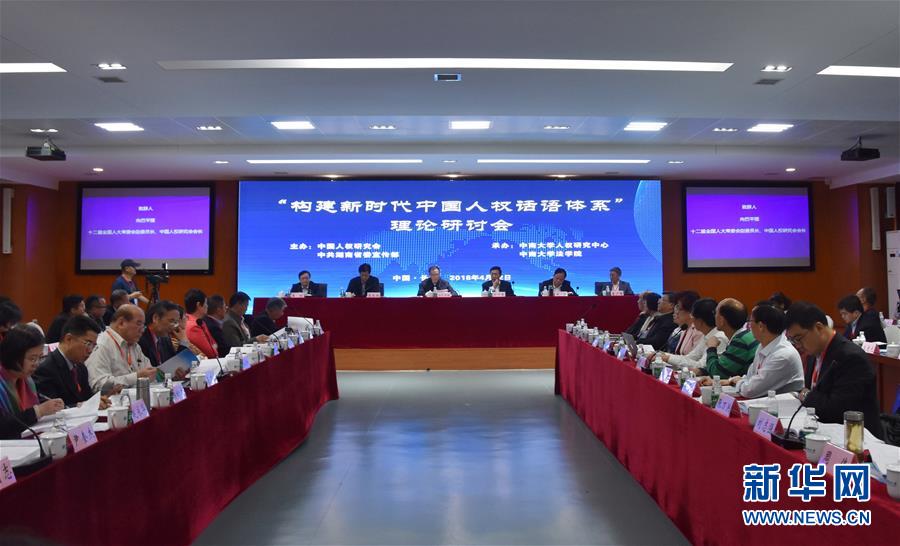China to construct human rights discourse in the new era
China.org.cn by Xiang Ting,April 13, 2018 Adjust font size:

The Workshop on the Construction of Human Rights Discourse in the New Era in China was held in Changsha, the capital city of central China’s Hunan Province on April 12. More than 70 participants from academia, government departments concerned and media discussed how to construct and promote human rights in the new era of China as well as the global governance of human rights.
According to the participants, human rights is an inclusive concept. Apart from the widely-known rights to subsistence and development, it also contains issues like South-South cooperation, poverty reduction, vulnerable groups, climate change, etc. In spite of their different perspectives to interpret human rights, the experts point out that the international community has reached a consensus in understanding this concept, i.e. human rights are people-oriented.
This is true for China as well, but there are differences. Guo Weimin, vice minister of the State Council Information Office of China, said that the construction of human rights discourse in the new era of China needs to be based on its national conditions, distinguishing itself from what is known to the western countries. In his opinion, human rights are in an evolving process, and during different periods of development priorities vary. “China has now entered a new era,” Guo said. “Let’s move with the times.”
Qiangba Puncog, president of the China Society for Human Rights Studies (CSHRS), stressed that to build human rights discourse in China, it is necessary to firmly stick to President Xi Jinping’s thought on socialism with Chinese characteristics for a new era, because it not only clarifies the direction, path and methodology for China’s human rights development but provides ideas on how to contribute China's wisdom to the global governance of human rights.
On top of that, Qiangba Puncog believed that practice serves as the basis for the theoretical research and discourse system construction of human rights in the new era. “Only in this way can we learn lessons and improve the system to better protect human rights in China,” he said.
Liu Rongrong, deputy director from the International Communication Research Center of Xinhua News Agency, shed a light on the communication of China’s human rights discourse from three aspects: in the past we passively responded doubts from the west, but now we should take the initiative to tell stories about China; they should be told in a way that international audience could accept; while showing the good sides, we should also admit our problems and figure out how to solve them. “It’s important to make the audience believe that what we are saying is true,” she said.
When it comes to the global governance of human rights, the experts agree that China has a role to play, and President Xi’s proposal to build a community of shared future is a typical example.
Liu Huawen, executive director from the Human Rights Research Center of Chinese Academy of Social Sciences, noted that on March 23 UN Human Rights Council passed the resolution titled Promoting Mutually Beneficially Cooperation in the Field of Human Rights proposed by China, a further step for the country to participate in the cause. “In the new era China will make greater contributions,” Liu said, “especially in achieving the Sustainable Development Goals.”
Co-hosted by CSHRS and the Hunan Provincial Publicity Department of the Communist Party of China, the workshop is organized by the Human Rights Research Center and Law School of Central South University.
An Yu also makes contribution to this article.
def2933e-f824-4954-b0df-0224cacf5457.jpg)